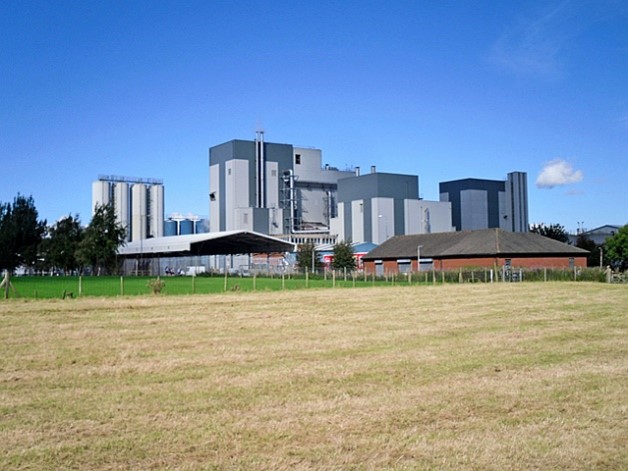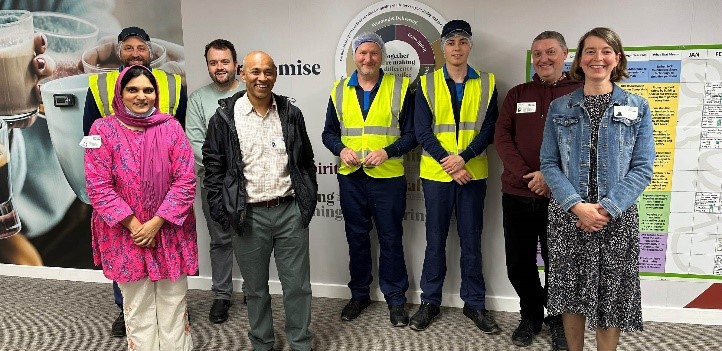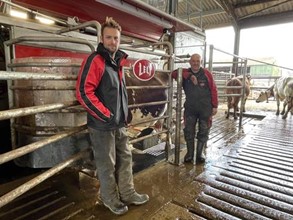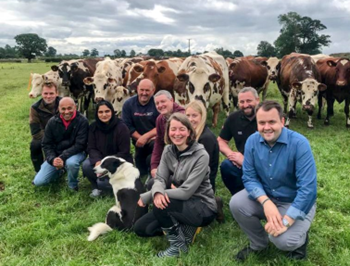Regenerative Agriculture: More than a Buzzword
An increasingly common buzzword used by environmentalists, commentators and businesses is ‘regenerative agriculture’ which acknowledges that the way we have managed our industrial food systems over the past half century has had a detrimental
effect on biodiversity and ecological health. As with all novel concepts, definitions can vary, but at its simplest regenerative agriculture speaks to an outcomes-based system that seeks to nurture and restore soil health whilst contributing to climate
and water resilience. It’s a system that blends science, technology, innovation and the regenerative power of nature. Whilst still needing to be commercial and profitable, regenerative agriculture recognises the critical necessity of restoration,
habitat conservation and a diversity of approaches.

We were delighted to have the opportunity of seeing one such project at first hand as the guest of Nestlé UK on a site-visit to their factory in the Lake District. The modern, purpose-built factory at Dalston near Carlisle announces
itself as ‘The Home of Cappuccino’ and it’s where millions of gold coffee sachets fly off the production line in a range of enticing flavours together with the familiar Coffee Mate powdered creamer. In a tour of the site we were
able to see the process from liquid milk intake to finished product. Nestlé makes products at Dalston for the home market as well as for export; its four liquid tanks can store up to 250,000 litres of milk each, with between 150,000 and 500,000
litres delivered each week from 39 local farms. The milk is tested on arrival and then goes through various processes – separation, evaporation, high-energy heat processes, the introduction of nitrogen, (the secret sauce that makes the final
powdered compound ‘frothy’), flavourings and ingredients, and finally to packaging that results in up to 25 million sachets flying off the line a week1.

What makes the process at Dalston different and innovative, is the way Nestlé is seeking to drive agricultural change via its relationships with farmers who supply the raw materials. Nestlé has a long-term contract with co-operative milk
processor, First Milk, which in turn works with 39 local farms in partnership to supply liquid milk. These long-term agreements give certainty and stability to local farmers at an agreed price premium to the farm-gate price. This in turn provides
the conditions in which farmers can invest – in technology, animal welfare and sustainability. As we know from the difficult economics, this is vital to long-term viability.
As part of the trip we were delighted to visit one such partner-farm near Penrith which supplies liquid milk to First Milk under contract to Nestlé. First Milk, a farmer-owned co-operative, works with around 700 farmers, but 15% of its turnover
derives from Nestlé, whilst it also makes ‘own-brand’ Cheddar for the likes of Sainsbury and Tesco2. Milk accounted for nearly a fifth of total agricultural output in the UK in 2020, with the country producing 15.3 billion
litres of milk annually. However, the industry is under huge pressure – herd sizes are reducing, and the number of active dairy farms has declined from over 35,000 in 1995 to 11,900 in 20203, in the main due to volatile farm gate
prices that are often below the cost of production. That is one reason why investment in long- term sustainable pricing by the likes of Nestlé is so vital to the future of farming and its continued resilience. First Milk itself has ambitious
regenerative targets such as sequestering 100,000 tonnes of carbon dioxide per annum on member farms by 2025, increasing yield from grazing by 10%, and further reducing antibiotic use in herds by 10% by 2025
As part of contract incentives, farmers are supported to transition to more regenerative practices. At the farm we visited, not only are fields rotated between grazing and fallow there is intra-field rotation, so herds do not over-graze. Soil health is
intrinsically connected with root health; over grazing will destroy root biomass making it harder for the grass to recover and negating sequestration. With experts we also explored how ‘healthy’ biodiversity is because of the quality of
the grazed grass; recent dung should be alive with beetles and insects, and at perhaps too close a view, we saw that it was. The farm is also exploring ‘Silvopasture’ a system that introduces trees mid-field in a natural way with herds
grazing around them. Trees provide much needed natural shelter and shade for the cows, whilst their root structures improve soil nutrition, health and water retention.

Finally, as part of technological innovation, the farm has invested in robotic milking, removing completely the twice daily cycle of human intervention. The cows, as we saw, are ‘in charge’ wandering in when they fancy a milk or moving away
if there was a queue. The automated robots provide a wealth of data unobtainable in a conventional milk parlour and from an animal welfare perspective makes for very mellow, relaxed cows! The system emphasises ‘free cow traffic’ that increases
yield, profitability and quality whilst reducing cost and the risk of mastitis (the robot disinfects every teat with a pre-wash and a post-iodine coating). The farm we visited with two robots and a herd of 120 pure-bred Normande cows (left) would
see on average three daily milkings and one refusal or 480 free traffic interactions each day compared to 240; within three months of installation yield had increased by 12% without compromising milk solids and maintaining fertility and herd health4.

Visiting the dairy farm in its glorious north-Lakes setting and seeing at first-hand the impact of sustainable, regenerative agricultural practices that lead directly to the finished coffee product of a daily cappuccino, brought alive the significant
influence companies like Nestlé are having in delivering a more sustainable way of farming, and as importantly, contributing to its ultimate survival. The coffee wasn’t bad either!
Source
- Nestlé UK to EdenTree
- First Milk First Milk - The Regenerative Co-op
- UK Dairy Industry Statistics House of Commons Library September 2021 SN02721.pdf (parliament.uk)
- Lely www.lely.com Customer Testimonial - Lely